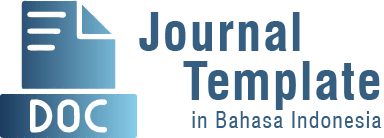Assessing the Needs of the Non-Accountancy Business and Management Graduates in the Bachelor of Science in Accountancy Program
Basis for Developing an Accounting Tutorial Project
DOI:
https://doi.org/10.24260/aktiva.v2i2.2799Keywords:
Non-Accountancy, Business, and Management (Non-ABM) graduates, Bachelor of Science in Accountancy (BSA) program, Tutorials, Support SystemsAbstract
Purpose: This study aimed to assess the needs of Non-Accountancy, Business, and Management (Non-ABM) graduates enrolled in the Bachelor of Science in Accountancy (BSA) program at a private college institution in Pagadian City, Philippines.
Methodology: Utilizing a purposive sampling method, the study selected 25 Non-ABM graduate participants who met the study's criteria. A qualitative case study approach, guided by Merriam's Case Study model, was employed, collecting data through interviews, observations, and data searching.
Result: The findings revealed that Non-ABM graduates experienced difficulties in keeping up with ABM graduates. Some participants relied on support from relatives and friends to enhance their learning. The study highlighted a significant need for basic accounting tutorials and review classes among Non-ABM students. These needs were addressed through the provision of YouTube tutorial links and simplified handouts.
Recommendations: Participants recommended a more gradual phasing of lesson delivery to improve learning for Non-ABM graduates. The study provides valuable insights into the unique learning processes and needs of Non-ABM students in the BSA program, offering a foundation for academic institutions and educators to develop effective support systems and interventions. This research contributes to a better understanding of the challenges, needs, and learning experiences of Non-ABM graduates enrolled in the BSA program.
Tujuan: Penelitian ini bertujuan untuk menilai kebutuhan lulusan Non-Akuntansi, Bisnis, dan Manajemen (Non-ABM) yang terdaftar dalam program Sarjana Sains Akuntansi (BSA) di sebuah lembaga perguruan tinggi swasta di Kota Pagadian, Filipina.
Metodologi: Dengan menggunakan metode purposive sampling, penelitian ini memilih 25 peserta lulusan Non-ABM yang memenuhi kriteria penelitian. Pendekatan studi kasus kualitatif, dipandu oleh model Studi Kasus Merriam, digunakan untuk mengumpulkan data melalui wawancara, observasi, dan pencarian data.
Hasil: Temuan menunjukkan bahwa lulusan Non-ABM mengalami kesulitan untuk mengimbangi lulusan ABM. Beberapa peserta mengandalkan dukungan dari kerabat dan teman untuk meningkatkan pembelajaran mereka. Studi ini menyoroti kebutuhan yang signifikan untuk tutorial akuntansi dasar dan kelas review di antara mahasiswa Non-ABM. Kebutuhan ini diatasi melalui penyediaan tautan tutorial YouTube dan handout yang disederhanakan.
Rekomendasi: Para peserta merekomendasikan pentahapan yang lebih bertahap dalam penyampaian pelajaran untuk meningkatkan pembelajaran bagi lulusan Non-ABM. Penelitian ini memberikan wawasan yang berharga tentang proses pembelajaran yang unik dan kebutuhan siswa Non-ABM dalam program BSA, yang menawarkan landasan bagi lembaga akademik dan pendidik untuk mengembangkan sistem dukungan dan intervensi yang efektif. Penelitian ini berkontribusi pada pemahaman yang lebih baik tentang tantangan, kebutuhan, dan pengalaman belajar lulusan Non-ABM yang terdaftar dalam program BSA.
Downloads
Downloads
Published
How to Cite
Issue
Section
License
Copyright (c) 2024 Benzelyn C. Acay, Oswald James A. Deiparine, Ellen A. Dingle, Janus G. Naparan, Mylene P. Alfanta

This work is licensed under a Creative Commons Attribution 4.0 International License.
Aktiva: Journal Of Accountancy and Management is using CC-BY license as the optimal license for the publication, distribution, use, and reuse of scholarly work.
Authors retain copyright and grant the journal right of first publication with the work simultaneously. Aktiva: Journal Of Accountancy and Management is licensed under a Creative Commons Attribution 4.0 International.







